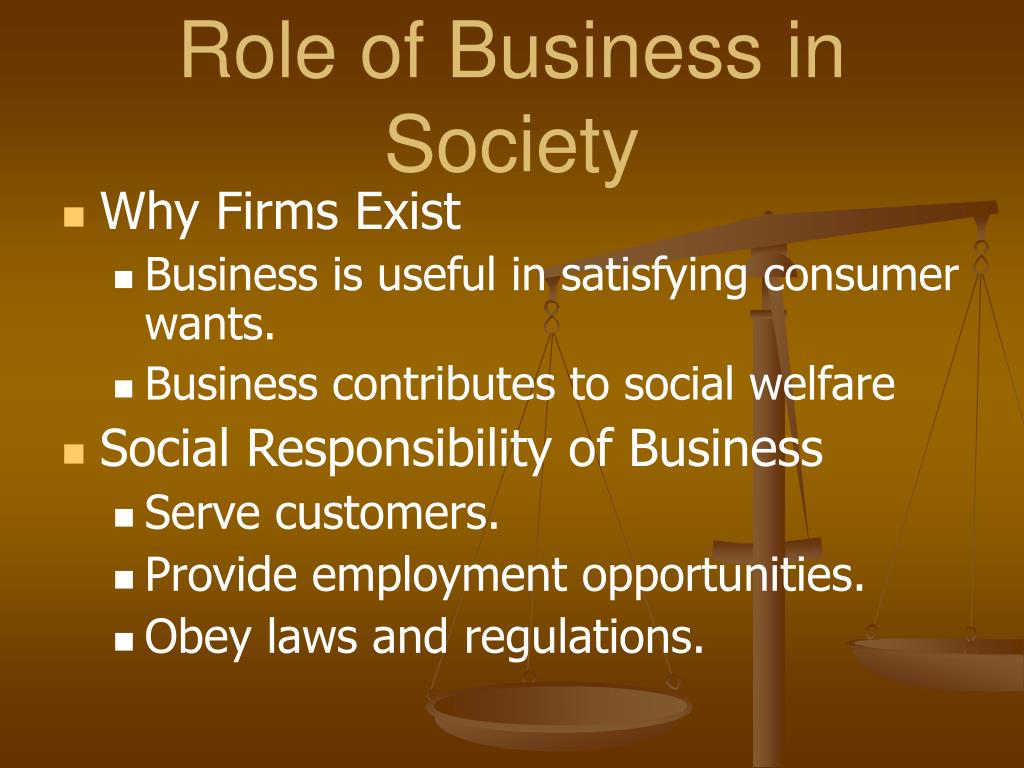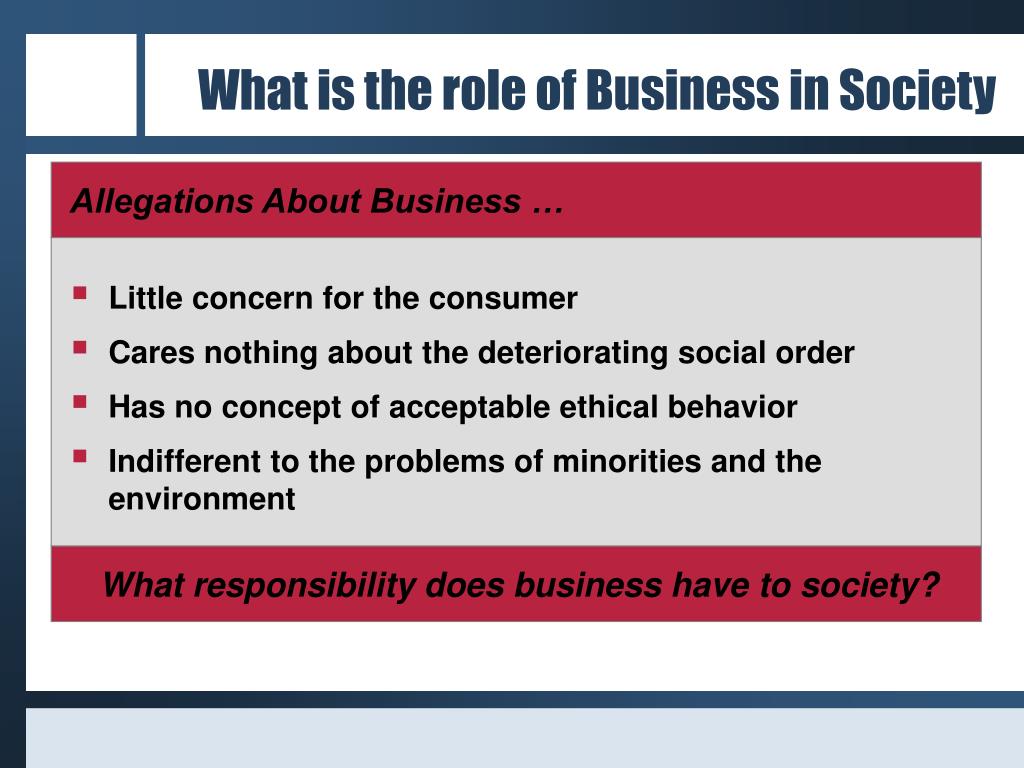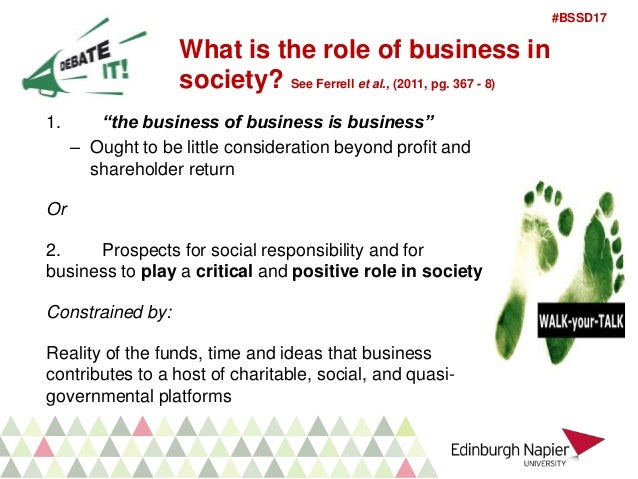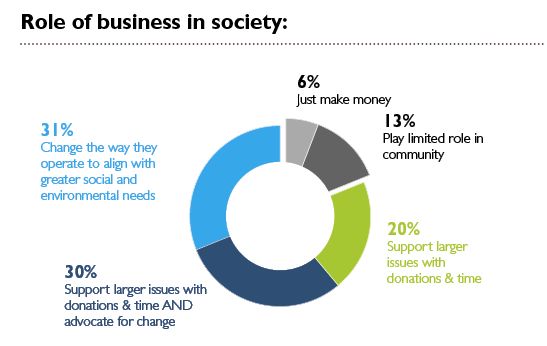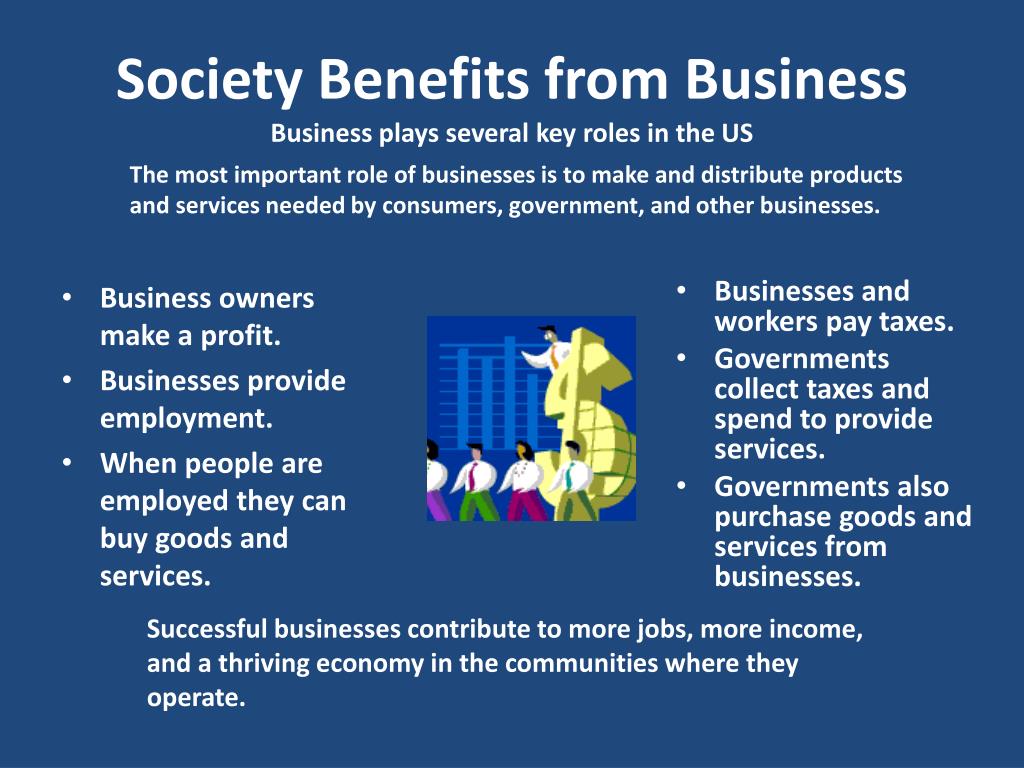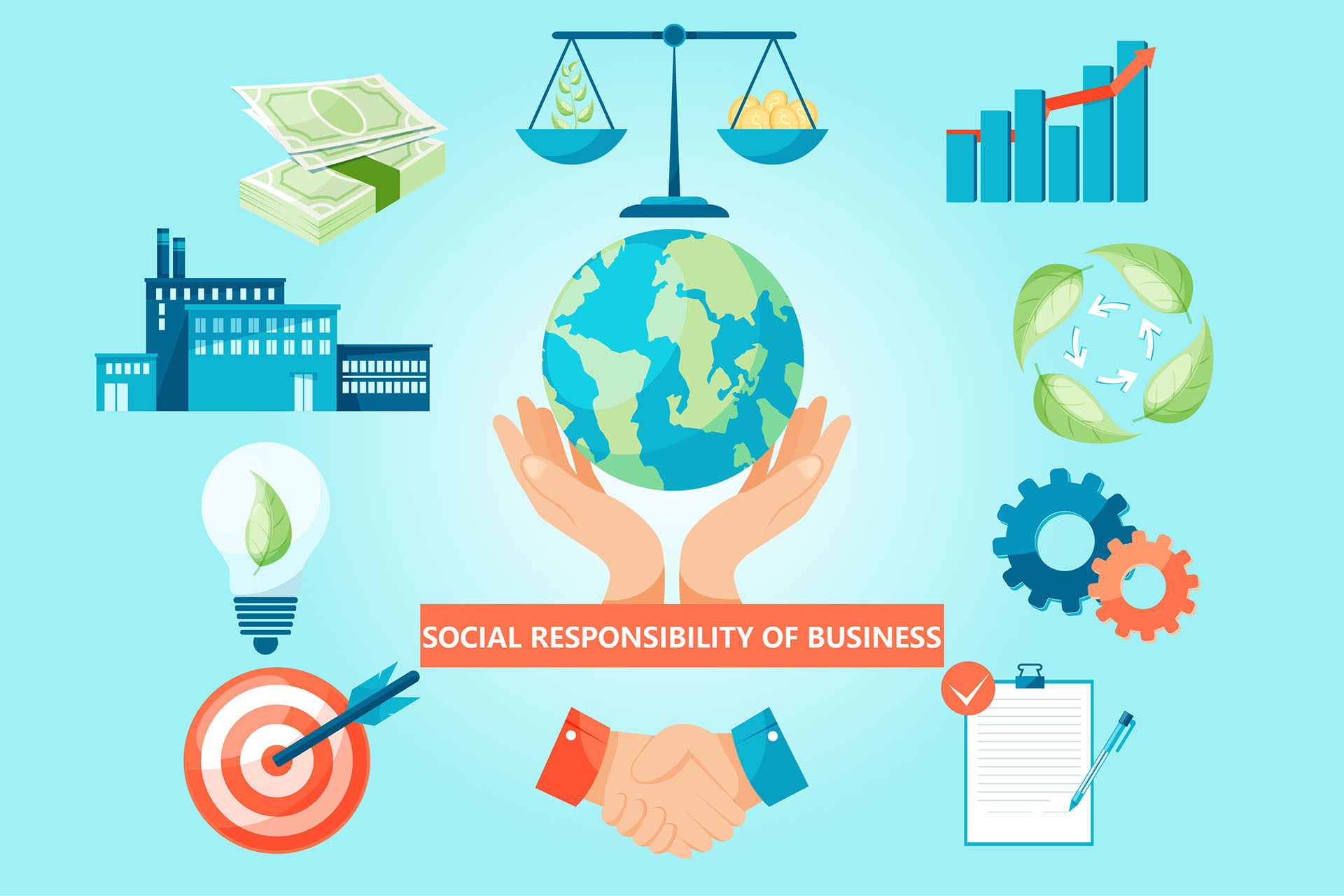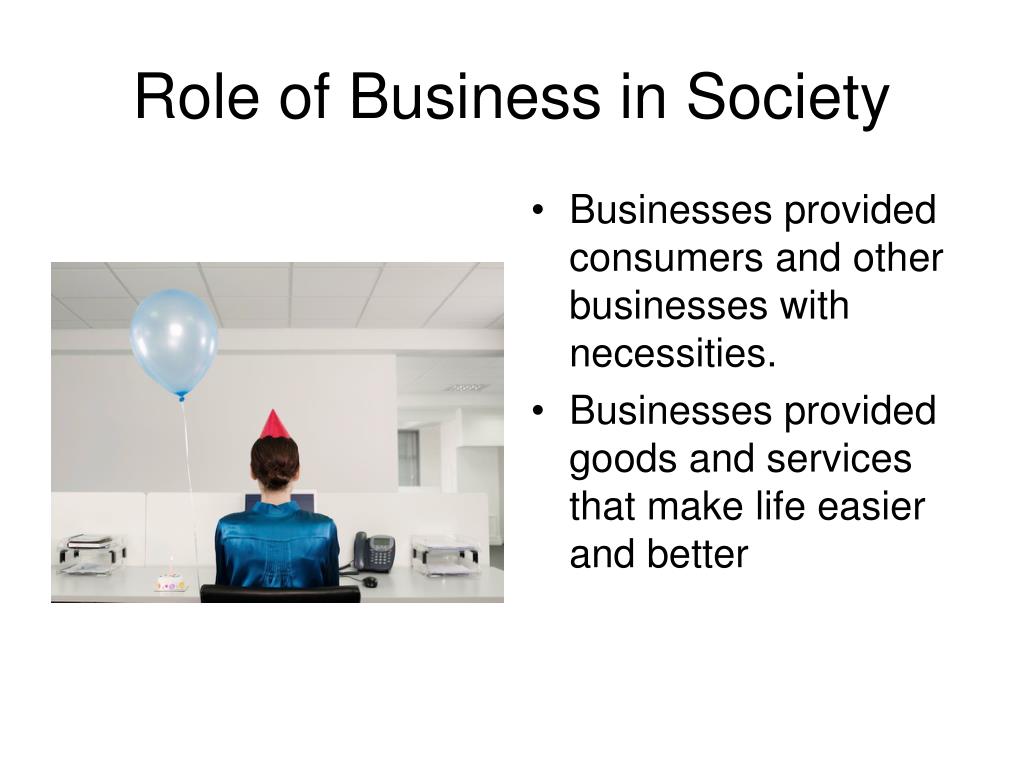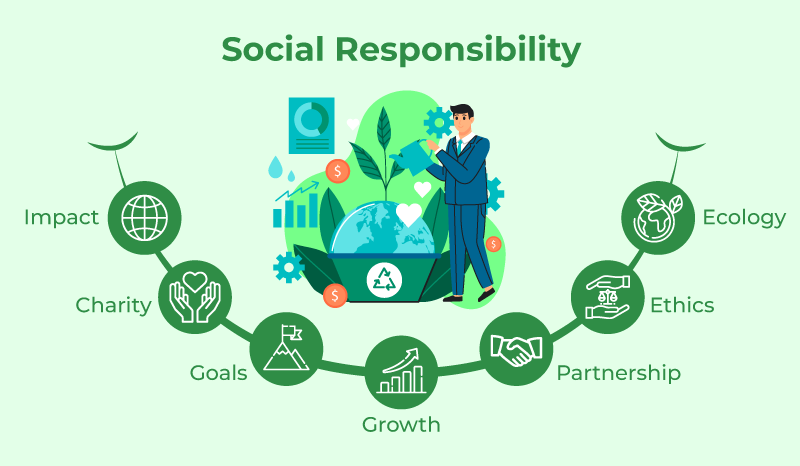What Is The Role Of Business In Society
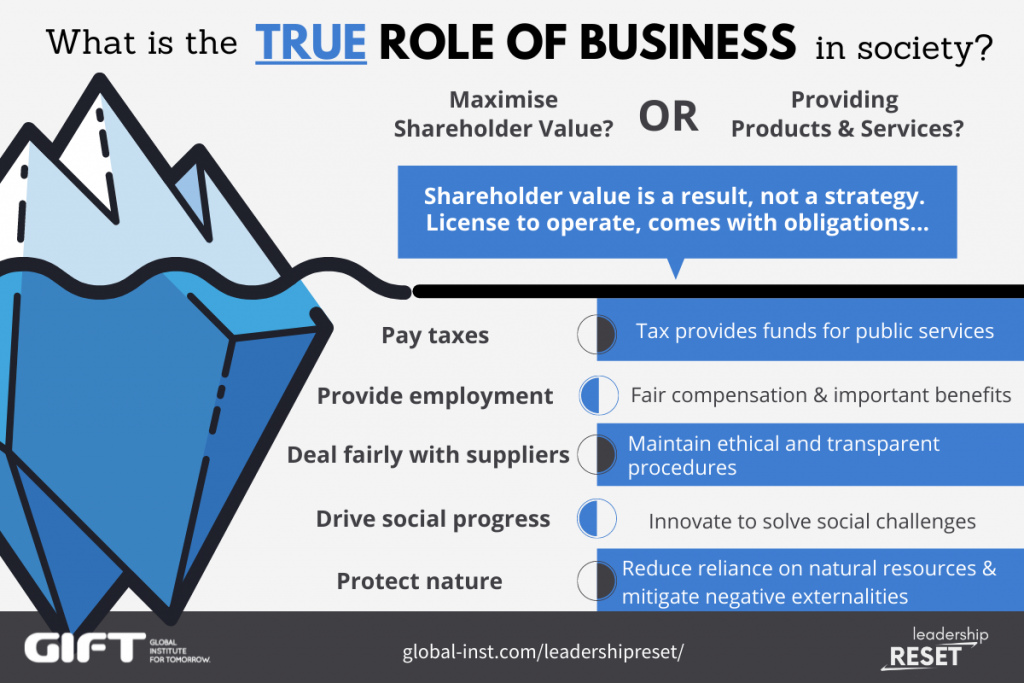
Imagine a bustling town square, sunlight glinting off the windows of family-owned shops, the aroma of freshly baked bread mingling with the chatter of neighbors. These scenes, reminiscent of simpler times, highlight a fundamental connection between businesses and the communities they serve – a relationship that has evolved and deepened over centuries.
At its core, the role of business in society transcends mere profit generation; it encompasses a complex web of responsibilities towards stakeholders, the environment, and the overall well-being of communities.
The Historical Perspective
Historically, businesses were inextricably linked to their local communities. Blacksmiths, farmers, and merchants provided essential goods and services, fostering a sense of interdependence and shared prosperity.
The Industrial Revolution brought about significant changes, with mass production and large corporations reshaping the economic landscape. This shift, while generating wealth, also raised concerns about worker exploitation and environmental degradation.
The late 20th and early 21st centuries witnessed a growing awareness of these issues, leading to calls for greater corporate social responsibility (CSR) and sustainable business practices.
The Modern Mandate: Beyond Profit
Today, the expectation is that businesses should operate ethically and contribute positively to society. This involves more than just obeying laws and paying taxes; it requires a proactive commitment to creating value for all stakeholders.
According to a 2019 statement by the Business Roundtable, a group of nearly 200 chief executives of major U.S. corporations, companies should prioritize all stakeholders, including customers, employees, suppliers, and communities, not just shareholders.
The rise of Environmental, Social, and Governance (ESG) investing reflects this shift. Investors are increasingly considering a company's environmental impact, social responsibility, and governance practices when making investment decisions.
Environmental Stewardship
Businesses are now expected to minimize their environmental footprint through sustainable practices. This includes reducing emissions, conserving resources, and responsibly managing waste.
Companies like Patagonia have long championed environmental activism, demonstrating that businesses can be both profitable and environmentally responsible.
Social Responsibility
Social responsibility encompasses a wide range of issues, including fair labor practices, diversity and inclusion, and community engagement. Fairtrade International works to ensure that farmers and workers in developing countries receive fair prices and decent working conditions.
Many companies are also investing in education, healthcare, and other social programs to improve the lives of people in their communities.
Ethical Governance
Ethical governance is essential for maintaining public trust and ensuring accountability. This involves transparency, integrity, and responsible decision-making.
Strong corporate governance structures help prevent corruption, fraud, and other unethical behaviors.
Challenges and Opportunities
Balancing profit with social responsibility can be challenging. Some argue that businesses should focus solely on maximizing shareholder value, while others believe that a broader perspective is necessary for long-term sustainability.
However, a growing body of evidence suggests that companies with strong ESG performance often outperform their peers financially. This is because customers, employees, and investors are increasingly drawn to businesses that are perceived as ethical and responsible.
Moreover, businesses that prioritize social responsibility are often better positioned to attract and retain talent. Employees are more likely to be engaged and motivated when they feel that their work is making a positive impact on the world.
The Future of Business
The role of business in society is likely to continue evolving. As global challenges such as climate change and inequality become more pressing, the expectation that businesses will play a leading role in addressing these issues will only grow.
Companies that embrace this responsibility will be best positioned to thrive in the long term. They will not only create value for their shareholders, but also contribute to a more sustainable and equitable future for all.
Imagine, again, that bustling town square, now powered by renewable energy, its shops selling sustainably sourced products, its community thriving on shared values. This is the vision of a future where businesses are not just economic engines, but also agents of positive change.
